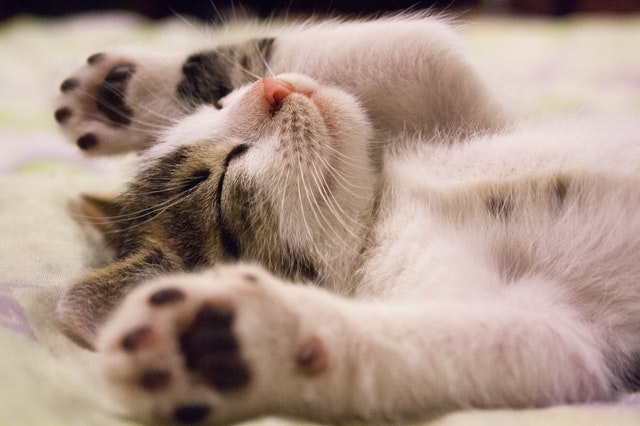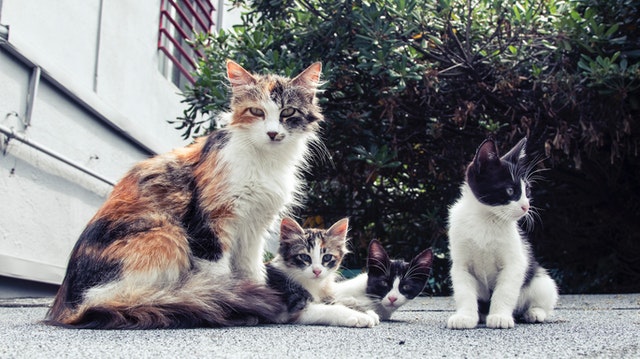Feline Veterinarians: What They Do and How They Differ From Other Veterinarians
Have you heard of feline veterinarians? They’ve become increasingly common in recent years. There are thousands of feline veterinarians practicing in the United States. Some of them work out of their own veterinary clinic, whereas others work out of traditional veterinary clinics. Regardless, they offer an essential service that improves the lives of cats.
Overview of Feline Veterinarians
Feline veterinarians are licensed veterinary practitioners who specialize in cats. Cats can get sick and injured — just like most companion animals. If an owner’s cat is sick or injured, he or she may take them to a feline veterinarian. Feline veterinarians offer medical services to improve the health of cats. They can diagnose illnesses and injuries in cats, and they can offer an appropriate treatment to achieve a positive prognosis. Feline veterinarians are simply licensed veterinarians who specialize in cats.
Feline Veterinarians vs Traditional Veterinarians: What’s the Difference?
As you may have guessed, the main difference between feline veterinarians and traditional veterinarians is that the former profession specializes in cats, whereas the latter professional does not. Feline veterinarians typically undergo extra education and training regarding the diagnosis and treatment of medical conditions in cats.
Traditional veterinarians, on the other hand, don’t specialize in cats or any other type of animal. Most traditional veterinarians offer medical services to all companion animals. Companion animals are common household pets. They can consist of dogs, cats, turtles, parrots, hamsters and guinea pigs.
What Feline Veterinarians Do
Like all veterinarians, feline veterinarians perform animal-related medical services. They just specialize in cats. Some feline veterinarians, in fact, only offer medical services to cats; they don’t see other types of animals. But there are still some feline veterinarians that offer medical services to a variety of animals. They still specialize in cats, but these feline veterinarians allow owners to bring in other types of animals for a medical diagnosis and treatment.
Feline veterinarians are trained to identify the symptoms of common diseases from which cats suffer. Different animals suffer from different diseases. Cats are particularly prone to diseases like feline immunodeficiency virus (FIV), feline leukemia, heartworm, diabetes, ringworm, feline distemper and arthritis. Fortunately, feline veterinarians know how to spot these diseases. They can diagnosis diseases in cats while offering specialized treatment regimens to help cats recover from them.

Benefits of Working as a Feline Veterinarian
There’s a strong demand for feline veterinarians. Cats are the second-most popular type of companion animal in the United States. According to the American Veterinary Medical Association (AVMA), over one-quarter of all U.S. households own at least one cat. The only companion animal that’s more popular than cats is dogs, which are found in over 38% of all U.S. households. With so many pet cats in the United States, feline veterinarians fulfill an essential need.
As a feline veterinarian, you’ll be able to work with cats on a daily basis. Most cats are calm, fun-loving animals. When working as a feline veterinarian, you’ll have the unique opportunity to handle and treat cats day after day — all while improving their health. It’s a rewarding feeling knowing that you are making a positive difference in the lives of cats as well as their owners.
Customer loyalty is often higher among feline veterinarians than with traditional veterinarians. While cats are naturally calm, they may become stressed around other animals. Feline veterinarians specialize in cats, so their practices don’t have many other animals. Owners can take their cats to your practice without worrying about other animals causing stress. Their cats will be relaxed and comfortable at your practice. As a result, more owners will return to your practice in the future if you work at a feline veterinarian.
How to Become a Feline Veterinarian
To become a feline veterinarian, you’ll need to get licensed to practice veterinary medicine. Licensing for all veterinarians is regulated on a state level. Whether you want to practice as a traditional veterinarian or a feline veterinarian, you’ll need to obtain a license from your state’s regulatory board.
The completion of a Doctorate of Veterinary Medicine (DVM) program is typically a licensing requirement. To become a feline veterinarian, you’ll need to complete a DVM program at an accredited college. DVM programs are typically four-year programs, and they are often preceded by a three- or three-year bachelor’s degree program. After completing a DVM program, you can obtain a license from your state’s regulatory board to practice as a feline veterinarian.
There are two different paths you can take as a feline veterinarian: you can start your own practice, or you can work for an existing practice. During the early states of your career, you may want to work for an existing practice, after which you can open your own practice.
In Conclusion
Not all veterinarians are the same. While most veterinarians offer medical services to a variety of animals, some of them specialize in cats. Known as feline veterinarians, they’ve undergone additional training and education to focus on cats.

